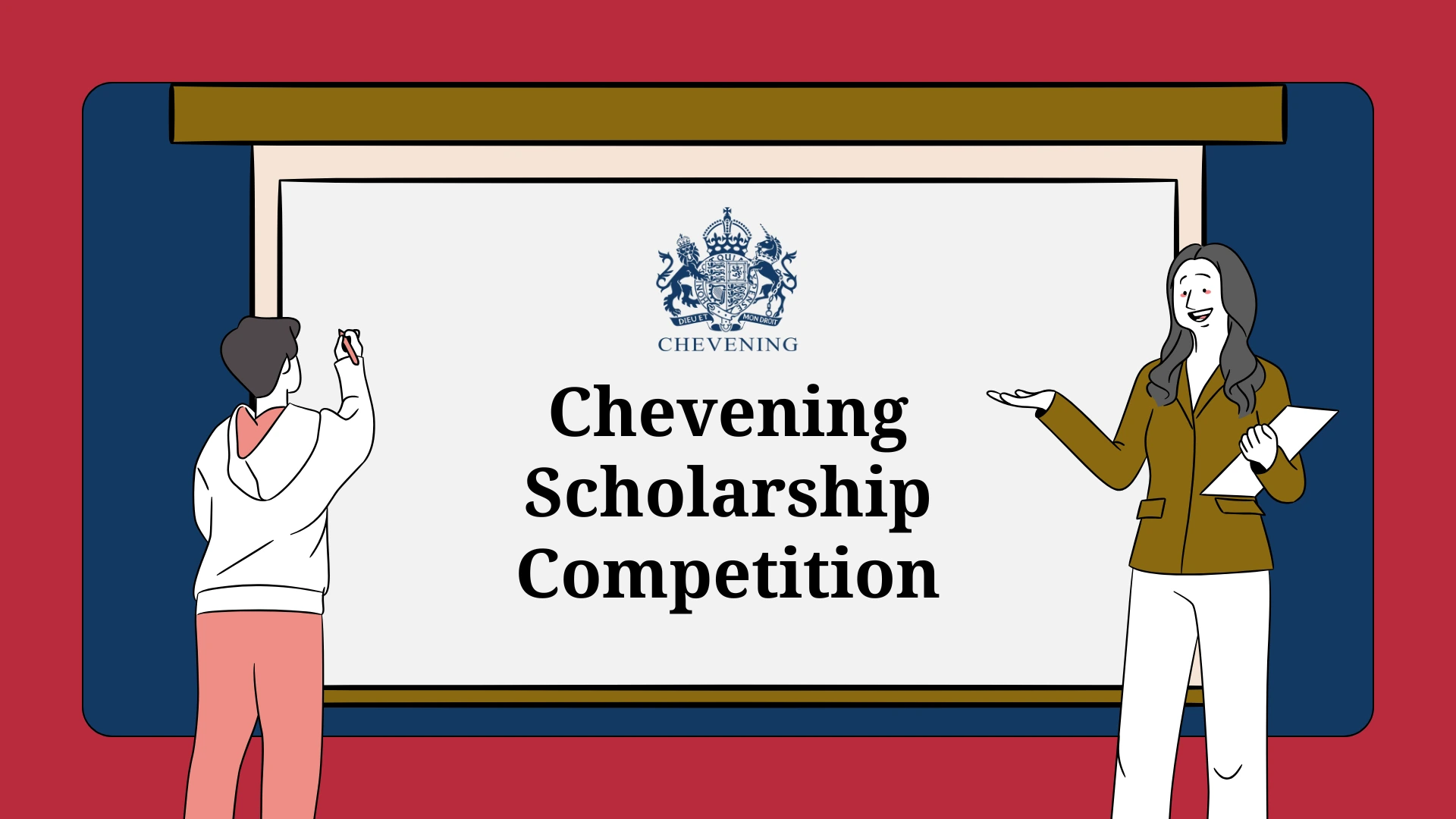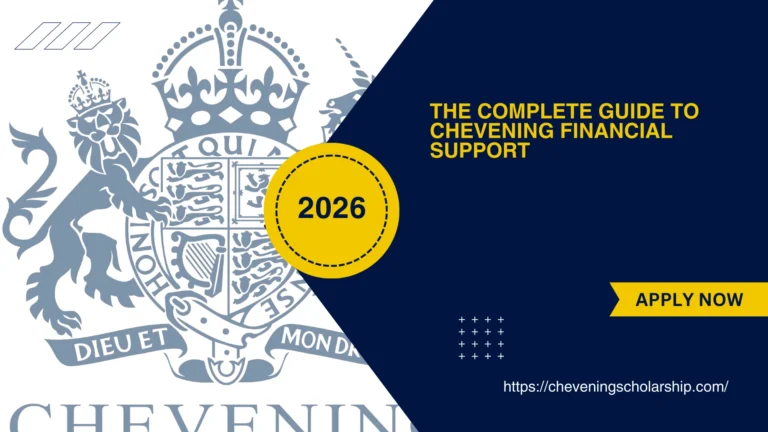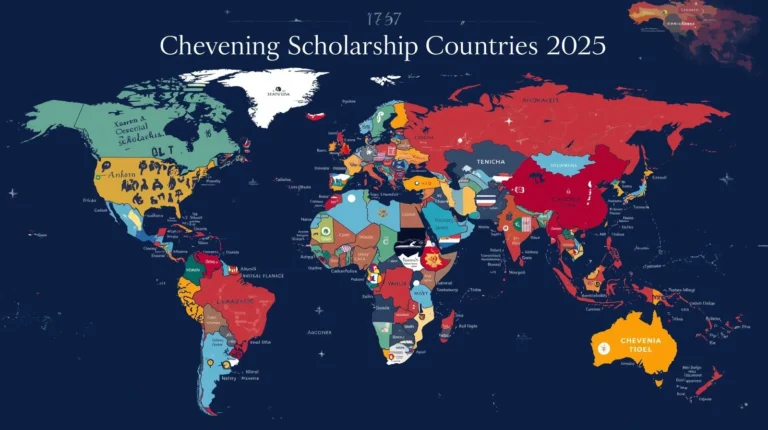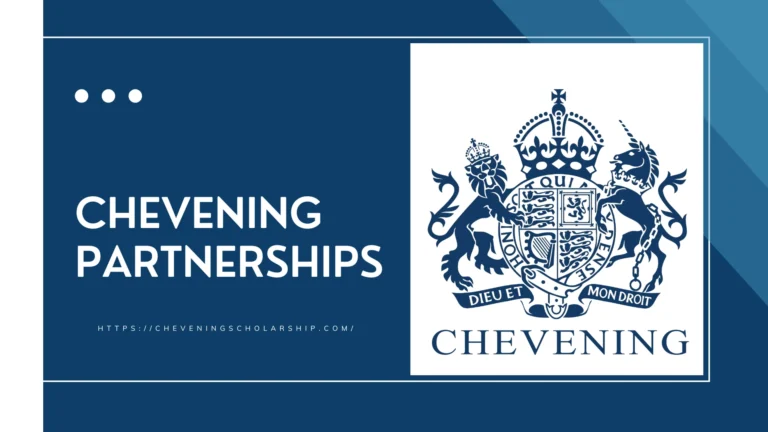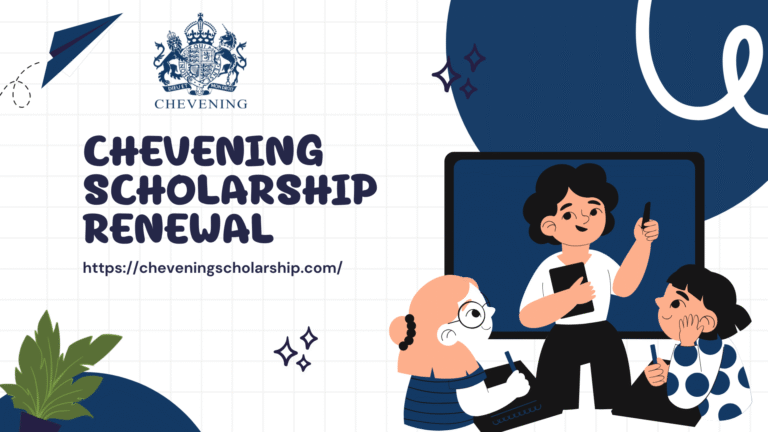Chevening Scholarship Competition: The Brutal Truth About Your Odds (And How to Beat Them)
Let’s start with the number that’ll either motivate you or terrify you: 2.5%
That’s the Chevening scholarship acceptance rate. Out of roughly 60,000 applications annually, about 1,500 scholars are selected. To put that in perspective, you have better odds of getting into Harvard (3.4%) than winning Chevening.
Still with me? Good. Because here’s what most people miss about the Chevening scholarship competition: understanding the odds isn’t about getting discouraged—it’s about getting strategic.
I’ve watched brilliant candidates with perfect credentials get rejected while seemingly “average” applicants secure scholarships. I’ve seen people apply five times before succeeding, and others nail it on their first attempt. The difference? It’s rarely about who’s objectively “best.” It’s about who understands what they’re up against and how to navigate it.
So let’s break down exactly how competitive Chevening scholarships really are, what the Chevening scholarship selection process looks like at each stage, and most importantly—how you can gain a Chevening scholarship competitive edge that actually matters.
Fair warning: Some of this will be harsh. But I’d rather you understand reality and compete effectively than go in blind with false hope.
The Numbers Game: Breaking Down Chevening Scholarship Competition
Global Competition Statistics
Let’s start with the hard data on Chevening scholarship acceptance statistics:
| Metric | Number | Percentage |
|---|---|---|
| Total Global Applications | ~60,000 | 100% |
| Shortlisted for Interview | ~8,000-10,000 | 13-17% |
| Final Scholarships Awarded | ~1,500 | 2.5% |
| Rejection Rate | ~58,500 | 97.5% |
What this means:
- 97.5% of applicants are rejected
- Only 1 in 40 applicants receives a scholarship
- Even reaching the interview stage is competitive (1 in 6-8 chance)
- More people are rejected at shortlisting than selected overall
Competition by Stage
The Chevening scholarship stages competition breaks down differently at each level:
Stage 1: Application Review
- Applicants: 60,000
- Pass rate: 13-17%
- Competition level: Highest
- Key factor: Meeting baseline criteria and essay quality
Stage 2: Interview
- Candidates: 8,000-10,000
- Pass rate: 15-20%
- Competition level: Intense but more achievable
- Key factor: Articulation, authenticity, and preparedness
Stage 3: Final Selection
- Interviewees: 8,000-10,000
- Selection rate: 15-20%
- Competition level: Fine margins
- Key factor: Overall package and panel assessment
Critical insight: Getting shortlisted is the hardest part. If you reach interviews, your odds improve dramatically—from 2.5% overall to roughly 15-20% from that point.
Country-Specific Competition: Where You Apply Matters
Chevening Scholarship Competition Pakistan
Chevening scholarship competition Pakistan is particularly intense:
Pakistan statistics:
- Applications received: ~5,000-7,000 annually
- Scholarships awarded: 30-40
- Acceptance rate: ~0.5-0.8%
- Chevening scholarship acceptance rate Pakistan: Among the lowest globally
Why Pakistan is so competitive:
- Large educated population
- High English proficiency
- Strong awareness of Chevening
- Cultural emphasis on international education
- Economic incentives to study abroad
Chevening scholarship competition statistics Pakistan show:
- Roughly 125-175 applicants per scholarship
- Interview shortlist rate: ~10-12%
- Interview-to-offer rate: ~20-25%
Competition Variations by Country
Chevening scholarship country-wise competition varies significantly:
| Country/Region | Relative Competition Level | Factors |
|---|---|---|
| Pakistan, India, Nigeria | Extremely High | Large applicant pools, high English proficiency |
| Kenya, Ghana, Bangladesh | Very High | Strong education systems, Commonwealth ties |
| Latin America, Southeast Asia | High to Moderate | Growing interest, smaller pools |
| Small Island Nations, Pacific | Moderate | Smaller applicant pools, specific allocations |
| Conflict/Post-Conflict Zones | Variable | Limited infrastructure but strategic priority |
Strategic implication: You’re not competing against the global pool—you’re primarily competing against applicants from your country or region. Understanding your specific competition landscape matters.
What Makes Chevening So Competitive?
The Perfect Storm of Competition Factors
Chevening scholarship competition high demand stems from multiple factors:
1. Brand Recognition
- UK government’s flagship scholarship
- 50,000+ successful alumni
- Global prestige and credibility
- Career acceleration reputation
2. Comprehensive Benefits
- Full funding (£35,000-50,000+ value)
- No debt upon graduation
- Network access
- Leadership development
3. Broad Eligibility
- No age limit (upper)
- All academic fields accepted
- Wide country coverage
- Relatively accessible requirements
4. Return Requirement Appeal
- Only 2 years (vs. permanent return requirements elsewhere)
- Fulfills development goals
- Enables future international opportunities
5. Application Accessibility
- Free to apply
- Online process
- Clear guidelines
- No application fee barrier
Result: Lower barriers to entry = higher application volume = more competition
The Competitive Criteria
What makes Chevening scholarship competitive criteria particularly challenging:
They’re assessing multiple dimensions:
- Academic excellence
- Professional achievement
- Leadership demonstrated
- Networking capabilities
- Career trajectory
- Communication skills
- Cultural fit
- Return commitment
- Strategic alignment with UK goals
You must excel in ALL areas. Being brilliant academically but weak on leadership won’t cut it. Strong work experience but poor communication skills will hurt you.
It’s not just about being good—it’s about being excellent across the board.
The Selection Process: What You’re Really Up Against
Stage 1: Application Screening
What happens:
- Initial eligibility check (work experience, education, citizenship)
- Essay evaluation (all four essays scored)
- Overall application assessment
- University choice evaluation
- Reference quality review
Chevening scholarship essay competition is fierce because:
- Four essays, 500 words each
- Every word matters
- Assessed by experienced reviewers
- Compared against thousands of others
- Generic responses = automatic rejection
Common rejection reasons at this stage:
- Insufficient work experience documentation
- Generic, template-based essays
- Weak demonstration of leadership
- Vague career plans
- Poor writing quality
- Missing the “Chevening fit”
The harsh reality: Reviewers spend roughly 10-15 minutes per application. You have that long to stand out from thousands of others. If your application doesn’t grab attention immediately, it’s out.
Stage 2: The Interview Crucible
Chevening scholarship interview competition is where many strong candidates fall apart.
Interview statistics:
- 8,000-10,000 shortlisted globally
- 15-20% pass rate
- 20-30 minute interviews
- Panel of 2-4 people
- Mix of prepared questions and spontaneous follow-ups
What they’re really assessing:
- Authenticity: Can you back up what you wrote?
- Articulation: Can you express yourself clearly?
- Depth: Do you have substance behind the words?
- Presence: Are you leadership material?
- Commitment: Will you actually return home?
- Fit: Do you embody Chevening values?
Why strong applications fail at interview:
- Can’t articulate their story spontaneously
- Exaggerated in essays, exposed in person
- Poor understanding of home country context
- Unclear about return plans
- Can’t handle pressure
- Lack authentic passion
The Chevening scholarship interview success percentage teaches us: Being shortlisted doesn’t guarantee anything. You’re competing against other shortlisted candidates who are all qualified on paper. Interview performance becomes the differentiator.
Stage 3: Final Selection
What determines the final cut:
- Combined application and interview scores
- Panel recommendations
- Strategic considerations (country quotas, sector priorities)
- Overall cohort balance (diversity across fields, backgrounds)
- Alignment with UK strategic goals
The Chevening scholarship success rate from interview to offer (15-20%) shows: Even excellent interviews don’t guarantee selection. Final decisions consider factors beyond individual merit—cohort composition, strategic priorities, and available scholarships per country.
Understanding Your Competition: Who Are You Up Against?
The Typical Competitive Applicant Profile
Chevening scholarship applicant pool size includes diverse candidates, but competitive applicants typically have:
Academic credentials:
- Strong undergraduate degree (First Class or 3.5+ GPA equivalent)
- Often additional qualifications
- Academic awards or distinctions
- Research experience or publications
Professional background:
- 3-6 years work experience (more than minimum)
- Progressive responsibility trajectory
- Leadership roles demonstrated
- Quantifiable achievements
- International exposure
- Sector-relevant experience
Leadership evidence:
- Founded or led organizations
- Managed teams or projects
- Created measurable impact
- Community involvement
- Awards or recognition
Communication skills:
- Excellent written English
- Confident spoken English
- Clear articulation of ideas
- Compelling storytelling ability
Network and profile:
- Professional networks established
- Sector visibility
- References from influential people
- Online presence (LinkedIn, publications)
Does this mean you need all of these? No. But understand that this is your competition. Where are you stronger? Where are you weaker? How will you compensate?
The Competitive Edge Factors
What gives certain applicants a Chevening scholarship competitive edge:
1. Authentic, specific narrative Generic applications die. Specific stories about real impact survive.
2. Clear UK-home country connection Demonstrating why UK education specifically addresses gaps in your context.
3. Demonstrated leadership in challenging contexts Leading despite constraints shows more than leading with resources.
4. Realistic, detailed return plan Named organizations, specific roles, measurable goals—not vague aspirations.
5. Strong alignment with Chevening values Understanding what Chevening seeks and naturally embodying it.
6. Excellent communication Both written and verbal—clear, concise, compelling.
7. Strategic university choices Programs that genuinely advance stated goals, not just prestigious names.
Tips to Win: Chevening Scholarship Tips to Beat Competition
Strategy 1: Don’t Compete Where Everyone Else Does
The mistake: Trying to be perfect at everything The strategy: Identify your unique angle and dominate it
Examples of differentiation:
Common approach: “I’m a development professional with strong academic background and leadership experience…”
Differentiated approach: “I pioneered mobile health clinics reaching 10,000 rural women in conflict-affected regions, creating a replicable model now adopted by three districts…”
Why it works: Specific, unique, memorable, demonstrable impact.
Your differentiation could be:
- Geographic (work in underserved/challenging regions)
- Sectoral (niche expertise or novel approach)
- Impact (quantifiable outcomes at scale)
- Methodological (innovative solutions to traditional problems)
- Background (unique journey to current position)
Chevening Reference Letters: The Complete Guide to Getting Stellar Recommendations
Strategy 2: Master the Essays
Chevening scholarship essays competition importance cannot be overstated. Your essays are your first and often only impression.
The four-essay strategic approach:
Essay 1: Leadership
- Don’t define leadership—show it
- Use specific example with STAR structure
- Quantify impact wherever possible
- Show growth and learning
- Demonstrate cultural intelligence
Essay 2: Networking
- Go beyond “I attend conferences”
- Show relationship building and maintenance
- Demonstrate reciprocal value
- Connect networking to goals
- Make it genuine, not transactional
Essay 3: Studying in UK
- Be specific about courses, faculty, methodologies
- Connect to career goals explicitly
- Show you’ve done deep research
- Explain why UK vs. other countries
- Demonstrate strategic thinking
Essay 4: Career Plan
- Name specific organizations or roles
- Timeline with milestones
- Acknowledge challenges realistically
- Show how UK education fills specific gaps
- Demonstrate commitment to home country
What separates winners:
- Specificity over generality
- Stories over statements
- Impact over activities
- Authenticity over what you think they want to hear
- Strategic coherence across all four essays
Strategy 3: Build an Ironclad Application
The Chevening scholarship competitive analysis of successful applications shows:
They’re coherent narratives:
- Work experience → Study choice → Career plan = logical progression
- Each element supports the others
- No contradictions or gaps
- Clear thread throughout
They’re evidenced thoroughly:
- Every claim backed by documentation
- Quantified achievements wherever possible
- Strong references that corroborate your story
- Professional presentation
They’re strategically positioned:
- Show awareness of context (home country needs, UK strengths)
- Demonstrate Chevening value alignment
- Clear differentiation from other applicants
- Compelling case for investment in you
Strategy 4: Prepare Obsessively for Interview
Chevening scholarship interview competition tips from those who succeeded:
1. Know your application cold
- Every detail memorized
- Can expand on anything written
- No contradictions between written and spoken responses
2. Prepare 20+ examples
- Leadership situations
- Challenges overcome
- Networking successes
- Failures and learning
- Impact created
3. Research deeply
- Your universities and courses
- Your field’s landscape in UK and home country
- Current affairs relevant to your sector
- UK-home country relations
- Chevening program itself
4. Practice out loud
- Record yourself
- Get feedback from others
- Refine articulation
- Improve timing
- Build confidence
5. Prepare questions for them
- Shows engagement
- Demonstrates research
- Leaves strong impression
6. Plan for curveballs
- Unexpected questions
- Challenges to your plans
- Ethical scenarios
- Pressure situations
Strategy 5: Play the Long Game
For those facing Chevening scholarship competition intensity:
If this is your first application:
- Treat it as learning experience
- Apply anyway even if profile isn’t perfect
- Use it to identify gaps
- Build toward reapplication
If you’re rejected:
- Chevening scholarship previous year competition insights show many successful scholars applied 2-3 times
- Use time to strengthen weak areas
- Gain more experience
- Improve essays
- Build stronger profile
Reapplication advantages:
- You know the process
- You’ve refined your story
- You’ve likely grown professionally
- You can demonstrate persistence
- Second or third applications often benefit from maturity
Don’t see rejection as failure. See it as a data point guiding improvement.
Managing the Competition: Psychological Strategies
Dealing with Chevening Scholarship Challenges in Competition
The psychological toll is real:
- Months of effort with uncertain outcome
- Comparing yourself to others
- Imposter syndrome
- Fear of rejection
- Perfectionism paralysis
Healthy competition mindset:
1. Focus on your story, not others’ You can’t control what others submit. You can only optimize your own application.
2. Recognize it’s not just about “best” Selection includes fit, timing, cohort balance. Being “objectively best” doesn’t guarantee anything.
3. Value the process itself The self-reflection, goal clarification, and essay preparation have value regardless of outcome.
4. Have backup plans Apply to multiple scholarships. Chevening shouldn’t be your only option.
5. Separate your worth from the outcome Rejection doesn’t mean you’re not good enough. It means you weren’t selected this time.
6. Learn from the competition Connect with other applicants. Learn from each other. Build your network.
The Comparison Trap
Common thought pattern: “That person founded an NGO at 23, published research at 25, won national awards… I’ll never compete.”
Reality check:
- You don’t know their full story or challenges
- They might have weaknesses you don’t
- Selection isn’t purely meritocratic
- Your unique context and story matter
- Authenticity beats impressive résumé
Better approach: Study successful profiles to learn, not to feel inadequate. Identify what worked, extract principles, apply to your unique situation.
Country-Specific Competitive Realities
High-Competition Countries: Special Strategies
For applicants from Pakistan, India, Nigeria, Kenya, Bangladesh:
Your challenge: Extremely high applicant-to-scholarship ratios. You need every advantage.
Your strategies:
1. Over-prepare everything
- Start 6+ months early
- Multiple essay drafts
- Extensive interview prep
- Every detail perfected
2. Differentiate aggressively
- You’re competing against thousands from your country
- Generic applications guaranteed to fail
- Find your unique angle and exploit it
3. Demonstrate deep home country knowledge
- Specific challenges in your sector
- Policy landscape understanding
- Concrete gaps you’ll address
- Named organizations or initiatives
4. Leverage any international exposure
- If you have it, highlight it strategically
- Shows you can thrive in UK environment
- Reduces perceived risk
5. Build exceptional references
- References from internationally recognized people help
- Quality of referees matters more in high-competition countries
- They help you stand out
Lower-Competition Countries: Don’t Get Complacent
For applicants from smaller applicant pools:
Your advantage: Lower competition means better odds—maybe 5-10% acceptance vs. 0.5-1%.
Your danger: Complacency. You still need excellent application.
Your strategy:
- Don’t assume you’ll win
- Maintain high standards
- Prepare thoroughly
- Remember you’re being assessed globally, not just locally
The Leadership Competition
Chevening scholarship leadership competition deserves special attention because it’s explicitly prioritized.
What Leadership Means to Chevening
Not just:
- Job titles
- Managing people
- Holding positions
But rather:
- Creating change
- Influencing others
- Taking initiative
- Overcoming obstacles
- Demonstrating impact
- Showing growth
Chevening scholarship leadership qualities competition tests:
- Can you lead in ambiguous situations?
- Do you influence beyond formal authority?
- Have you created measurable impact?
- Do you develop others?
- Can you build coalitions?
- Do you demonstrate cultural intelligence?
Strong leadership evidence:
- Founded organization from scratch
- Led change initiative in established organization
- Mobilized community around cause
- Created measurable social impact
- Mentored emerging professionals
- Navigated complex stakeholder environments
The Networking Dimension
Chevening scholarship networking competition is unique because:
- Few scholarships explicitly assess networking
- It’s hard to fake convincingly
- It reveals relationship-building skills
- It predicts future value to Chevening community
Strong networking evidence:
- Built and maintained diverse professional network
- Leveraged networks to achieve goals
- Contributed value to network members
- Created platforms for others to connect
- Maintained relationships over time
- Cross-cultural or cross-sectoral networking
The Career Plan Competition
Chevening scholarship career plan competition is where many lose points.
Why Career Plans Matter So Much
They reveal:
- Strategic thinking ability
- Commitment to home country
- Realistic understanding of context
- Clarity of purpose
- How UK education fits
Weak career plans:
- “I’ll work in development sector”
- “I’ll become a leader in my field”
- “I’ll help my country develop”
- “I’ll gain international experience”
Strong career plans:
- “I’ll return to Ministry of Education where I currently work, specifically to the curriculum development unit, to implement evidence-based reforms in rural school infrastructure, leveraging the policy analysis skills from my UK master’s”
The difference: Specificity, realism, clear connection to UK education, demonstrated understanding of home country needs.
Social Impact and Global Competition
Chevening scholarship social impact competition and Chevening scholarship global competition intersect:
The Development vs. Commercial Tension
Chevening prioritizes:
- Candidates who’ll create positive change
- Development-oriented goals
- Public sector or non-profit trajectories
- Social impact over commercial success
This doesn’t mean:
- You can’t be in private sector
- Commercial goals are disqualified
- Entrepreneurship doesn’t count
But it means:
- Frame private sector work in terms of impact
- Show how commercial activity creates social value
- Demonstrate development mindset
- Connect profit to purpose
Demonstrating Global Citizenship
Chevening values:
- Cross-cultural competence
- International perspective
- Understanding of global challenges
- Ability to work across borders
Evidence this through:
- International collaborations
- Cross-cultural project experience
- Global network participation
- Understanding of UK-home country relations
- Broader regional or global context awareness
The Benefits of Competing
Chevening scholarship competition benefits extend beyond winning:
Even If You Don’t Win
You gain:
- Clarity on career goals (forced by essay process)
- Improved writing skills
- Better articulation of your story
- Stronger professional references
- Research on universities and programs
- Interview skills (if shortlisted)
- Network with other applicants
- Motivation to strengthen profile
Many report: “I didn’t get Chevening, but the application process clarified my direction and strengthened other applications I made. I won a different scholarship partly because Chevening prep made me a better candidate.”
The Application as Professional Development
The process develops:
- Self-awareness and reflection
- Strategic thinking
- Communication skills
- Goal-setting abilities
- Resilience and persistence
- Networking and relationship-building
These skills transfer to:
- Job applications and interviews
- Promotion processes
- Entrepreneurship pitches
- Any competitive selection process
- Professional visibility and branding
Competitive Success Stories
Chevening scholarship competitive success stories teach valuable lessons:
Pattern 1: The Multi-Year Winner
Profile: Applied three times before winning Key learning: Used each rejection to systematically improve Differentiation: Third application showed clear professional growth and refined narrative
Pattern 2: The Unexpected Victor
Profile: “Average” credentials but exceptional story Key learning: Authentic impact beat prestigious credentials Differentiation: Unique context and demonstrable change created
Pattern 3: The Strategic Applicant
Profile: Strong but not exceptional, applied from lower-competition country Key learning: Geographic strategy matters Differentiation: Understood competition landscape and positioned accordingly
Pattern 4: The Resilient Leader
Profile: Overcome significant adversity, demonstrated leadership in challenging context Key learning: Context matters—leading with constraints shows more than leading with resources Differentiation: Authentic struggle and growth resonated
Final Strategies: Your Competition Action Plan
12 Months Before Application
Strengthen your profile:
- Gain additional work experience
- Take on leadership roles
- Create measurable impact
- Build your network
- Develop expertise
- Increase visibility in field
6 Months Before Application
Deep preparation:
- Research Chevening thoroughly
- Study successful applications
- Connect with alumni
- Identify your unique angle
- Draft preliminary essays
- Line up strong referees
3 Months Before Deadline
Application development:
- Multiple essay drafts
- Feedback from multiple readers
- Refine narrative coherence
- Perfect documentation
- Secure references early
- Apply to universities
Post-Submission
Interview preparation:
- Assume you’ll be shortlisted
- Prepare from day one
- Deep research on programs
- Current affairs knowledge
- Practice extensively
- Build confidence
If Rejected
Learn and improve:
- Don’t take it personally
- Identify weak areas honestly
- Strengthen profile systematically
- Consider reapplying
- Apply to alternative scholarships
- Move forward with growth mindset
The Bottom Line on Competition
Chevening scholarship competition is intense. Let’s not sugarcoat it.
The reality:
- 97.5% rejection rate
- Thousands of qualified applicants
- No guarantee even with perfect profile
- Multiple factors beyond your control
- Requires significant time investment
- Outcome uncertain despite best efforts
But also:
- 1,500 people win annually
- Those people aren’t superhuman
- Strategic approach improves odds significantly
- Your unique story matters
- Authenticity beats perfection
- Persistence often wins eventually
The question isn’t “Can I compete?”
The question is “Will I compete intelligently?”
Because here’s what I’ve learned watching hundreds of Chevening competitions:
The people who win aren’t always the objectively strongest candidates. They’re the ones who:
- Understand what they’re up against
- Play to their strengths strategically
- Communicate their value compellingly
- Prepare more thoroughly than others
- Stay authentic while being strategic
- Persist through setbacks
You can’t control the competition. There will always be someone with more impressive credentials, more prestigious positions, more awards and recognition.
But you can control:
- How early you start
- How deeply you prepare
- How authentic your story is
- How coherent your narrative is
- How strategic your positioning is
- How well you communicate your value
That’s your competitive edge. Use it.
Ready to compete for Chevening?
Your next steps:
- Assess your profile honestly against competitive landscape
- Identify your unique differentiation angle
- Start building your application narrative
- Connect with alumni in your field
- Begin essay drafts 6 months before deadline
Have you competed for Chevening? Share your experience in the comments—what surprised you about the competition? What would you do differently?
Current applicants: What aspects of the competition worry you most? Let’s crowdsource strategies together.
Remember: The competition is real, but so is your potential. Compete smart, stay authentic, and give yourself the best possible shot. That’s all anyone can do.

